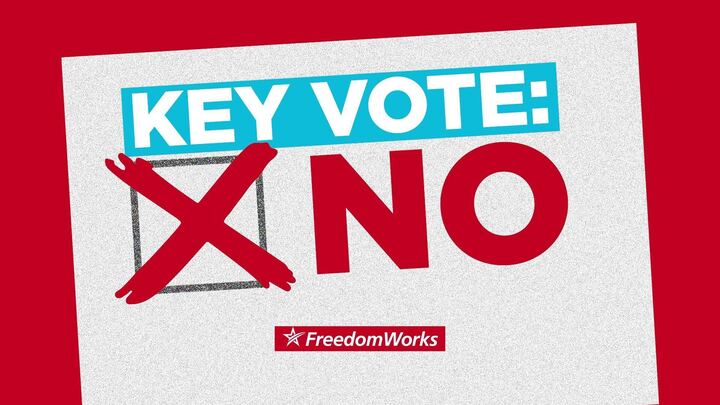In SCOTUS, The First Amendment Comes Out On Top
The First Amendment to our Constitution contains the most significant protections of individual liberty in our republic. From freedom of religion to the right to petition the government for a redress of grievances, Americans can voice their thoughts without fear of government obstruction. Unfortunately, there is a consistent effort among some politicians to directly undermine the liberties guaranteed to all Americans in our Bill of Rights.
Politicians in state capitols and Washington D.C. are pursuing donor disclosure requirements for charitable organizations. These policies present a serious threat to the privacy of donors during an era of “cancel culture” and run in direct opposition to the freedom of assembly guaranteed by the First Amendment.
Last week all eyes were on the Supreme Court as Chief Justice John Roberts issued the majority opinion in Americans for Prosperity v. Bonta (2021). This case addresses dangerous donor disclosure requirements.
The Details
Background on the case.
- Under California law, the California Attorney General’s office requires charities to annually disclose their major donors’ personal information in spite of the fact that this information is kept private by the IRS and FEC.
- Americans for Prosperity (AFP) and the Thomas Moore Law Center are two conservative-leaning charities that either intentionally failed to produce or produced a redacted list of their major donors to the California Attorney General’s office.
- Upon demands by the California Attorney General that AFP and the Thomas Moore Law Center produce lists of their donor’s information, the organizations sued California arguing that these requirements violate the First Amendment.
The question at the heart of the case
- Does California’s policy forcing charities to disclose the names and addresses of their donors violate the First Amendment?
What was the court’s conclusion?
- California’s donor disclosure policy burdens the First Amendment rights of charitable donors and is not tailored to a narrow government interest. The donor disclosure policy is facially invalid.
Why it Matters
Preserving the First Amendment and the liberties it protects should be of interest to all Americans and affect individuals across the political spectrum. No donor should have to worry about their personal information being leaked to the public.
The decision reached in Americans for Prosperity v. Bonta is an important statement for preserving the Bill of Rights and individual liberty. Unfortunately, there are still politicians who seek to undermine the Bill of Rights with donor disclosure policies.
Incorporated into H.R. 1 or the “Corrupt Politicians Act” is the DISCLOSE Act, a thinly veiled measure to release the names of 501c(4) donors and expose them to the cancel culture mob. Thankfully, due to the 60-vote threshold of the Senate filibuster, the “Corrupt Politicians Act” failed to pass. However, the filibuster is under attack from leftists who wish to push through a radical agenda that includes packing the Supreme Court, undermining the First Amendment, and federalizing elections.
Following the defeat of the “Corrupt Politicians Act,” Democrats are now pivoting to an even more dangerous piece of legislation, H.R. 4, the John Lewis Voting Rights Act. This bill would create a pre-clearance requirement for state election laws, effectively granting Attorney General Merrick Garland veto power over any change in election law. It is important to note that President Biden’s Department of Justice has already filed suit against Georgia’s election integrity reforms.
In Shelby County v. Holder (2013), the Supreme Court narrowly ruled in a 5-4 decision that Section 4b of the Voting Rights Act of 1965, a similar pre-clearance eligibility requirement, is outdated and violates the Tenth Amendment.
The push by Democrats to revitalize the blatantly dangerous preclearance policy emphasizes the importance of preserving both the court and filibuster.
The decision reached in Americans for Prosperity v. Bonta protecting First Amendment rights is a tremendous example of the Supreme Court working as it should. Attempts by progressives to erode the Supreme Court’s independence and eliminate the filibuster must be rejected at every turn.




